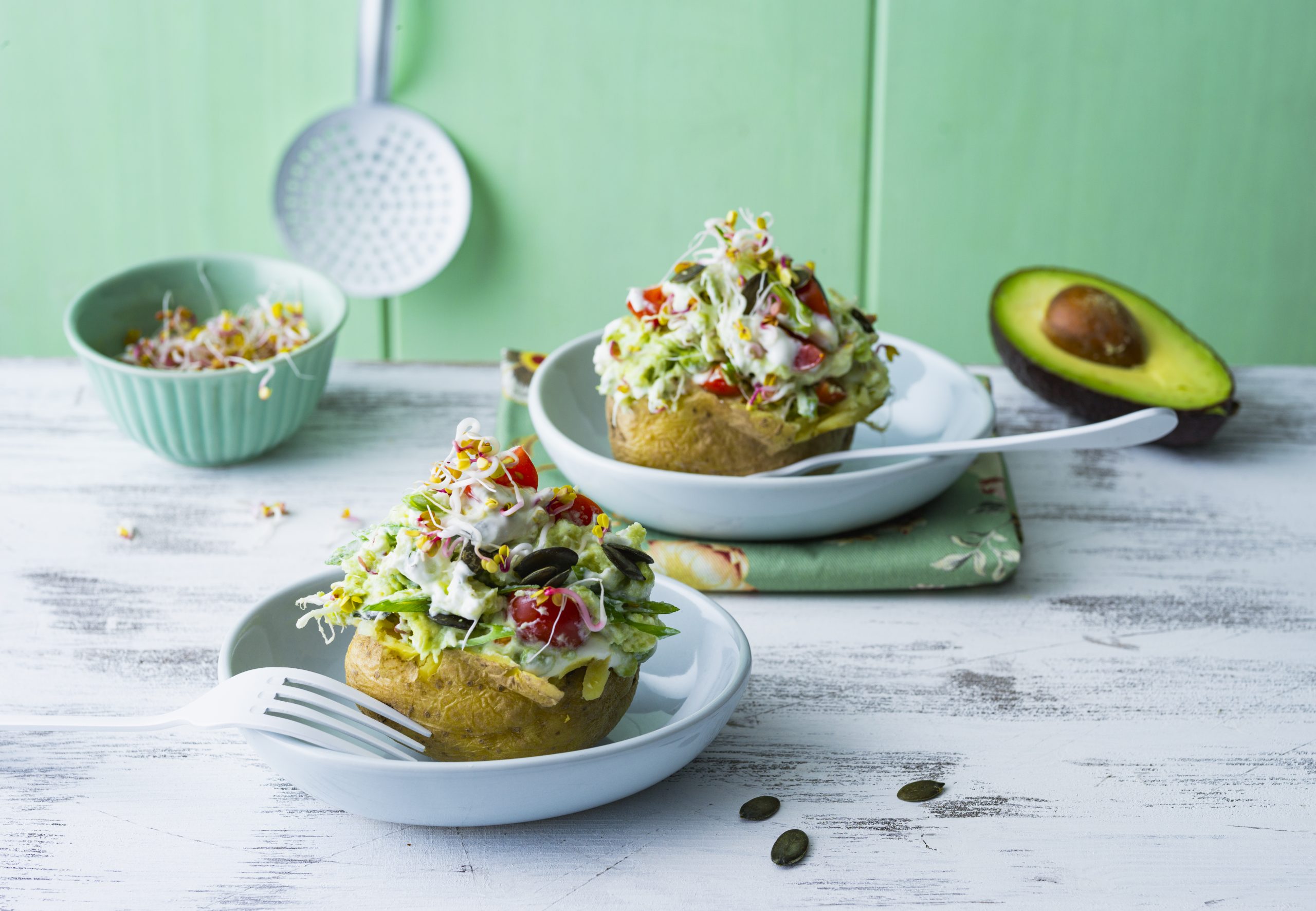What to eat during your period and what foods to avoid
Do you find yourself feeling run down, moody and tired when you're on your period? Find out what to eat to feel better


Parenting advice, hot topics, best buys and family finance tips delivered straight to your inbox.
You are now subscribed
Your newsletter sign-up was successful
Our experts share what to eat during your period to help combat pain, cramps, and bloating.
Do you find yourself feeling run down, tired and experience period cramps during your menstrual cycle? Well you're not alone with Women's Health Concern reporting 80% of women will suffer with their periods at one point during their lifetime. Whilst painkillers usually help, there's actually more natural steps you can take to help aid your body through the process, with your diet an important factor to consider.
As nutritionist Mina Khan explains: "It’s really important to make good nutritional choices during your period. The body is already going through a lot and losing vital nutrients such as iron, so during this time it’s crucial that you keep an eye on your intake of a variety of key vitamins and minerals."
We've done the research and compiled a list of the period-friendly foods you need to know about (and the ones you should avoid too!)
What to eat during your period:
1. Mango
Studies have shown that natural sugars in fruits such as mango can help alleviate bloating. Something we all commonly misread as period weight gain.
“They’re also great for staying hydrated as they’re rich in water,” adds Mina. “Mangos also contain Vitamin A and C, alongside folate, B6, iron and zinc which can all contribute to energy yielding during your period.”
2. Dark Chocolate
“It’s a little known fact that dark chocolate and cacao are high in iron, which is helpful for anyone who experiences heavy or prolonged bleeding,” explains Sarah Toler, a certified Nurse Midwife and science writer for period app tracker Clue. “So it’s okay to indulge in chocolate and other iron-rich foods like leafy greens and tofu during your period.”
Parenting advice, hot topics, best buys and family finance tips delivered straight to your inbox.
It’s predicted that women lose between 220 to 250mg of iron per pint of blood during menstruation. This in turn can increase our risk of anaemia. So it’s important to replace the lost iron with dark chocolate which is good for you and contains 7mg of iron in every 3 ounces.
Magnesium which is another essential mineral found in dark chocolate that helps combat period pain, adds Mina.
“Magnesium helps reduce the severity of PMS symptoms such as cramps by relaxing the smooth muscle of the uterus, as well as reducing prostaglandins (a group of hormones that contribute to pain).”
3. Yoghurt
Yoghurt is a probiotic rich food, meaning that it can help promote the growth of ‘good bacteria’ in the body.
One study has shown this bacteria can help fight off yeast infections like thrush, which are "common amongst many women right before their period,” says Mina.
“So it may be a good idea to up your intake of foods such as this in the few days before your period is due.”
4. Lentils
Lentils are a food rich in both fibre and iron. They're also a great source of protein for vegetarians.
"While menstruating, iron levels can take a dip so eating iron rich foods can help counteract this drop," says Mina, recommending lentils as one food to eat during your period.
Foods high in fibre such as lentils can also help aid digestion during this time. And one particular study has shown lentils are good for general stool and gut health.
5. Almonds
Almonds are rich in Vitamin E, which has been scientifically found to help reduce swelling and painful breasts during the menstrual cycle.
Mina notes that these nuts also contain high levels of omega 3 and protein. These can “keep you feeling fuller for longer and help sustain your energy levels.”
Be sure to snack on a generous handful before attempting some yoga moves for period pain.
6. Salmon or other oily fish
A simple salmon salad or pasta is great to eat during your period, according to the experts.
One scientific study found that omega 3, found in Salmon, is effective in helping to ease breast pain. Whilst another study found that this fish oil is effective in reducing period pain. It's also a common natural remedy for PMS.
As Mina explains: “Omega 3s found in Salmon are known to decrease inflammation which can help reduce the intensity of period pains. Additionally, iron rich fish such as salmon can help counteract your dip in iron levels experienced while menstruating.”
Nurse Midwife Sarah Toler adds that the omega 3 in salmon can improve mood disorders pre-menstruation too:
“If you experience depression or anxiety before or during your cycle, you may want to consider eating foods high in omega-3 like salmon, nuts, or flax seed oil,” she says. “Some research suggests omega-3 fatty acids might reduce anxiety and depression and increase our ability to focus.”
7. Salad
“Salad foods such as lettuce, cucumber and tomatoes can act as natural diuretics in the body,” says Mina. These can help flush liquid through the body and decrease bloating.”
Salad veggies like lettuce and tomatoes are also packed with great vitamins like Vitamin C and Vitamin A. And they're both notably high-fibre foods. These are great at promoting good body health when you might be feeling a little bit run down during menstruation.
8. Brazil nuts
Mina hails brazil nuts as a great food to eat during your period. “They’re rich in omega 3 which has been found to contribute to a reduction in inflammation and pain,” she tells us.
Indeed one research study found that omega 3 reduced the intensity of dysmenorrhea (the medical term for painful menstrual periods). And that it even decreased the dependency on ibuprofen as a relief for this pain.
9. Jacket Potato
It turns out a jacket potato (with cheese and beans, of course) has its plus points when eaten at that time of the month.
"While on their period, many women suffer from a range of digestive issues including constipation," says Mina. "Foods high in fibre such as jacket potatoes can really help with this, making it easier to go and reducing abdominal discomfort."

10. Turmeric
Turmeric is an incredible anti-inflammatory spice that is great for treating bloating. It's main active ingredient curcumin also boasts benefits to common period side effects. One study found that people who took curcumin during their menstrual cycle had less severe PMS symptoms. Add to curries or drink a nice warming cup of turmeric tea.
And... Drink Water
We're told to always drink plenty of water during the day. But it turns out that H2o is extra important during our menstruation period too.
"It’s believed that gut transit time might slow during the luteal phase (the time when you have your period), causing constipation in some people," says Sarah Toler. "So you want to focus on water intake, as well as eating high fibre foods like leafy greens, beans, and fresh fruits."
Adequate water intake will also reduce your risk of headaches and keep dehydration at bay. "As well as this, drinking enough water can also reduce the chance of your body retaining too much water, therefore reducing bloating," adds Mina.
What should we avoid eating during periods?
Takeaways
"No matter how tempting a nice pizza, kebab or Chinese takeout sounds during your time of the month, these foods often contain really high amounts of salt, saturated fat and too much sugar, which can wreak havoc on your digestive system and actually worsen period pain," advises Mina.
However, you can still enjoy a takeaway at this time of the month - so long as you make smart choices. Ask for boiled rice instead of fried rice or chips, grilled chicken instead of deep fried and sushi instead of battered fish. You'll thank yourself for it later.
Chocolate and ice cream
Sometimes all you want to do is curl up on the sofa with a tub of Ben and Jerrys. Yet this comfort food could actually be doing more harm than good, as Mina explains: "Foods such as these are really high in both saturated fat and sugar. When we eat excessive amounts of foods such as these, we’re putting ourselves at risk of weight gain, skin problems, diabetes and heart disease - not to mention mood swings!"
We'd recommend swapping milk and white chocolate for dark when the cravings kick in thanks to it's high iron content. And any other sugary treats can be enjoyed - though moderation is key.
Spicy foods
Spicy foods can be a struggle at the best of times for those prone to IBS symptoms and even more so during their period, says Sarah Toller.
"People with irritable bowel syndrome (IBS) often experience worsened abdominal pain, bloating, or diarrhea during their periods," she explains. So it's best to lay off foods that are hot and contain chilli, garlic and onions.
Alcohol
Alcohol should also be limited or completely avoided where possible during your period. This is because it will bring on symptoms of dehydration like headaches, bloating and digestive issues, says Mina.

Mina Khan is a nutritionist, and qualified pharmacist. She spent 25 years working as a pharmacist before moving into the health food and nutraceuticals industry. Having been brought up with Ayurvedic Medicine, she believes passionately in the use of natural ingredients to help prevent and manage a range of health conditions. She gained her Bachelor of Science (BSc) Pharmacy at the University of Sutherland - and went on to found the nutraceuticals brand, Formulate Health.

Emily Stedman is the former Features Editor for GoodTo covering all things TV, entertainment, royal, lifestyle, health and wellbeing. Boasting an encyclopaedic knowledge on all things TV, celebrity and royals, career highlights include working at HELLO! Magazine and as a royal researcher to Diana biographer Andrew Morton on his book Meghan: A Hollywood Princess. In her spare time, Emily can be found eating her way around London, swimming at her local Lido or curled up on the sofa binging the next best Netflix show.